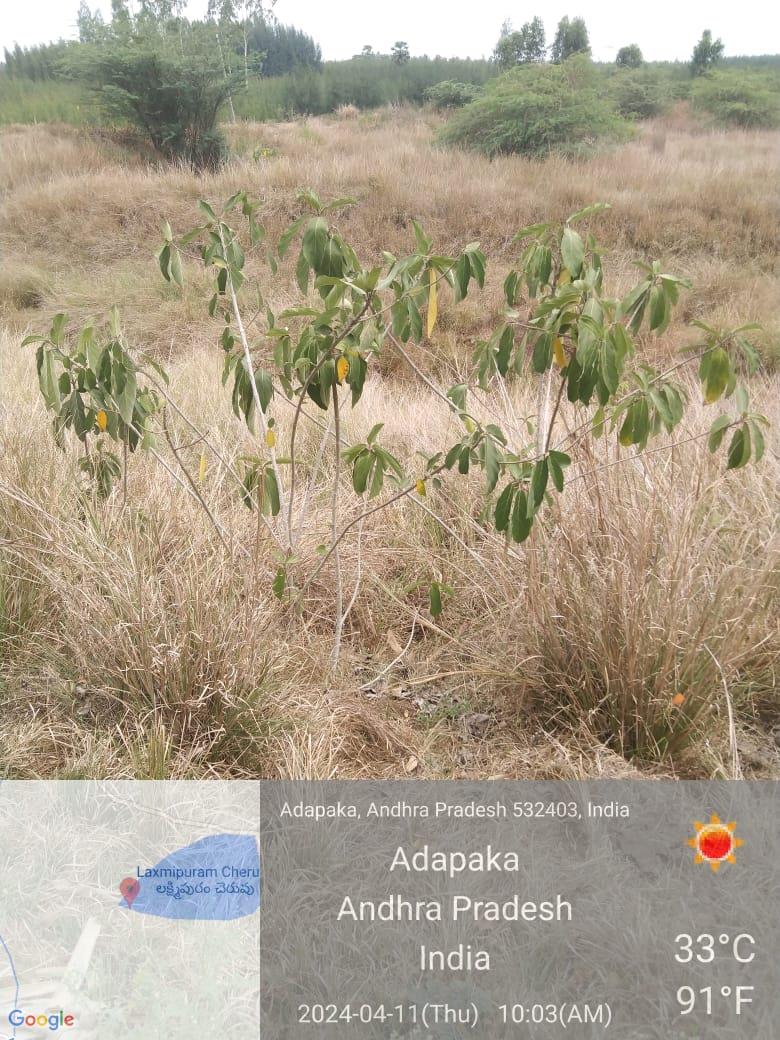
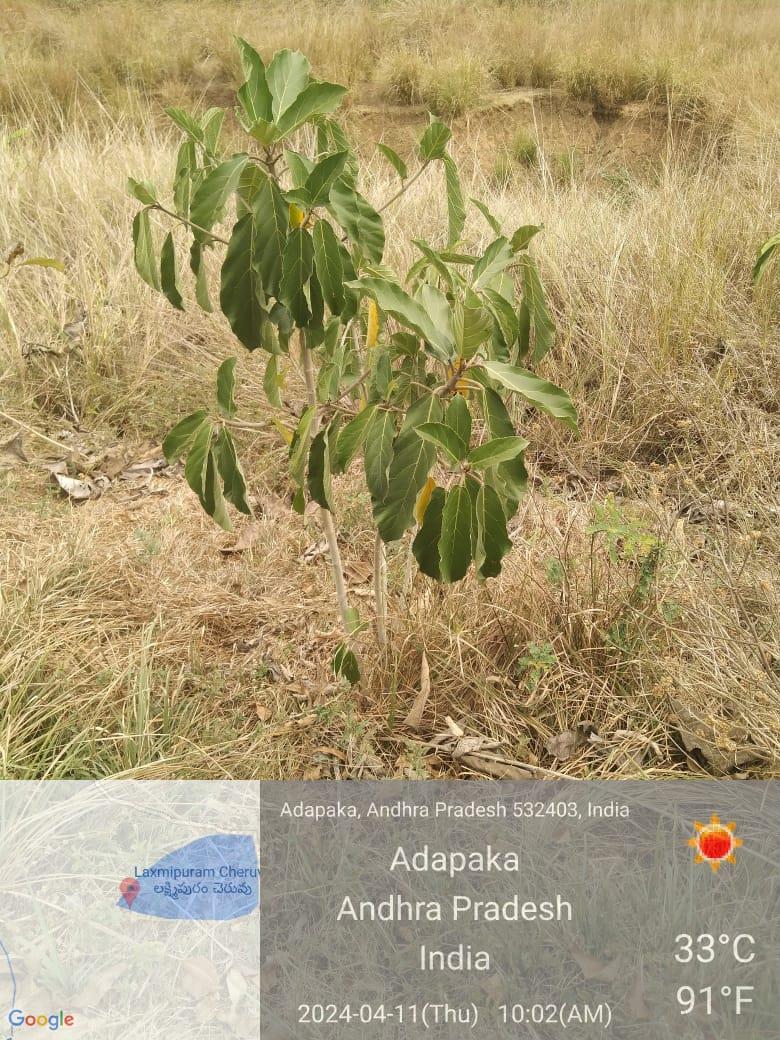
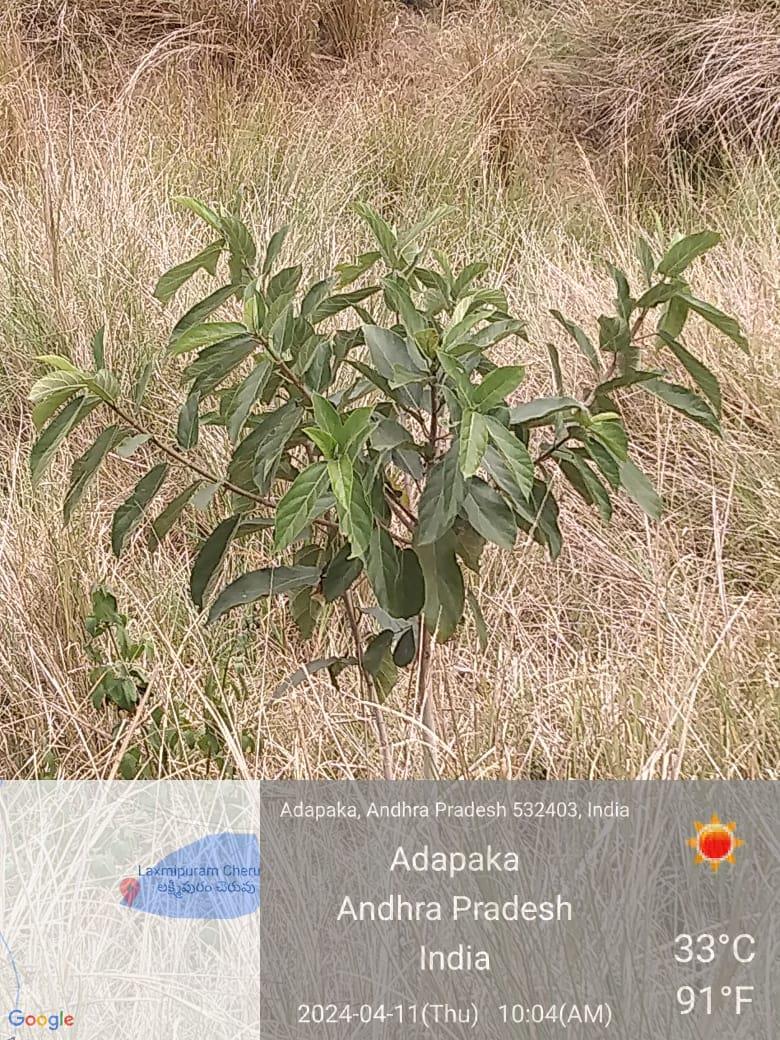
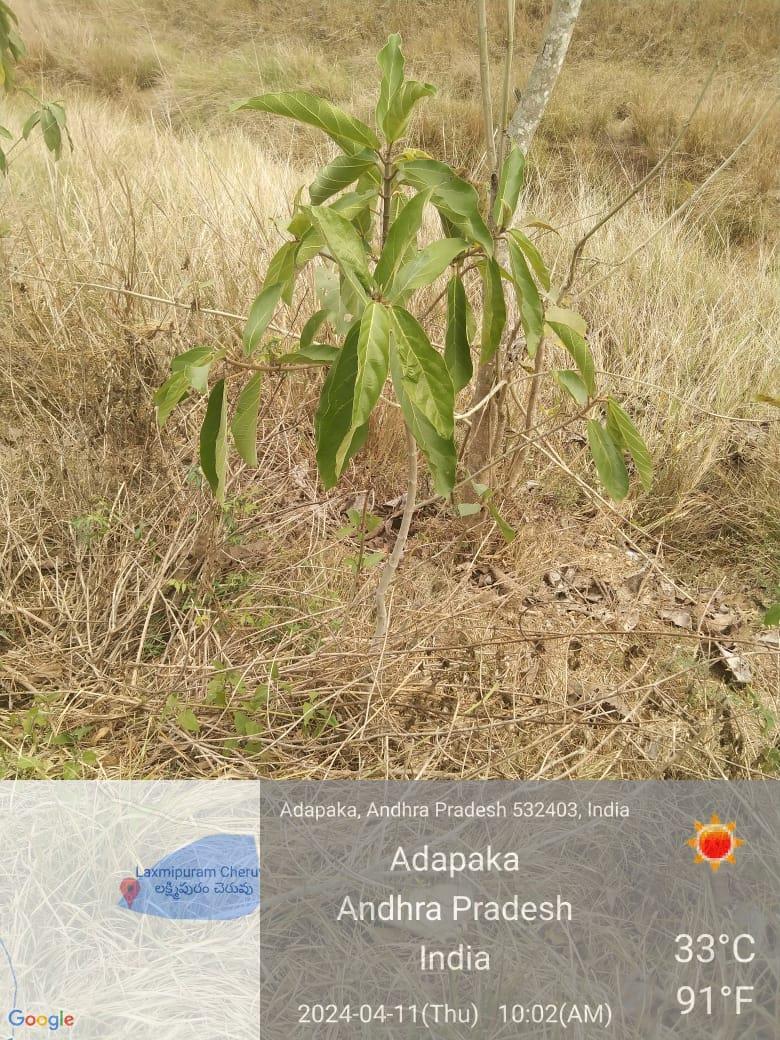


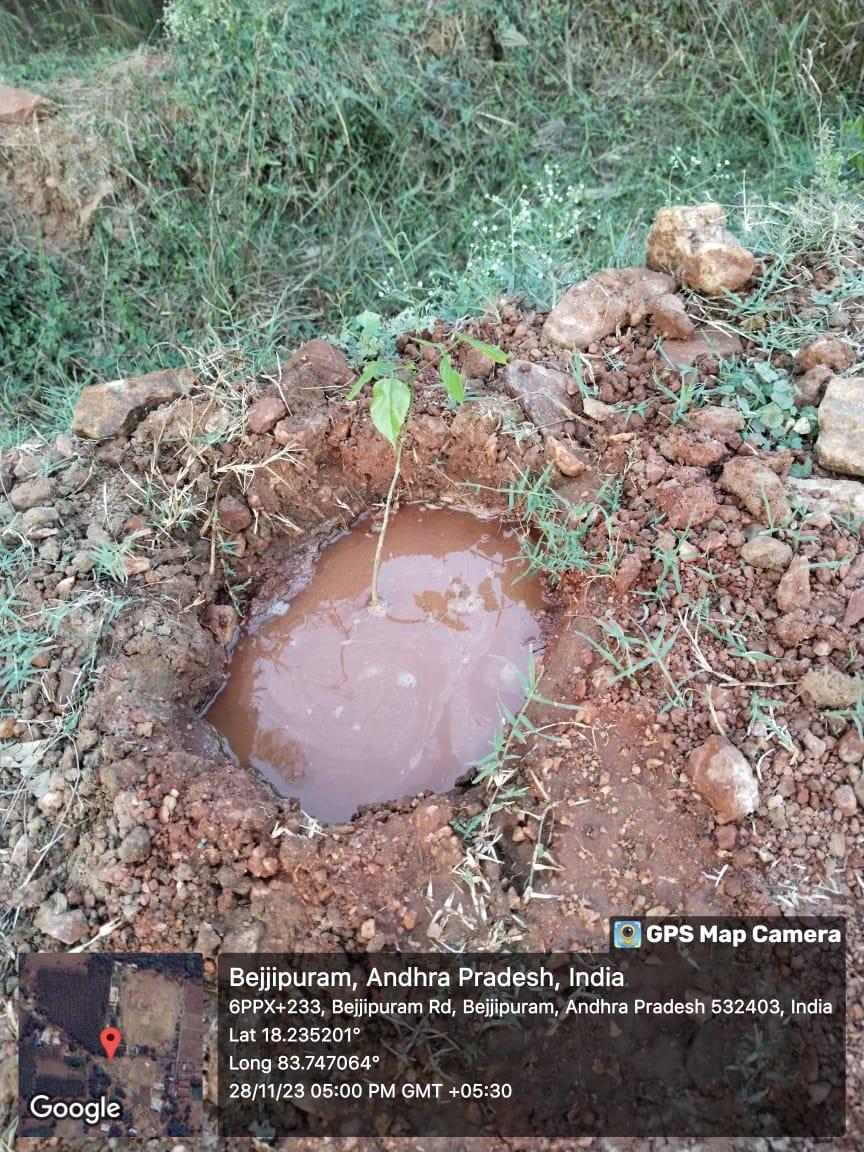
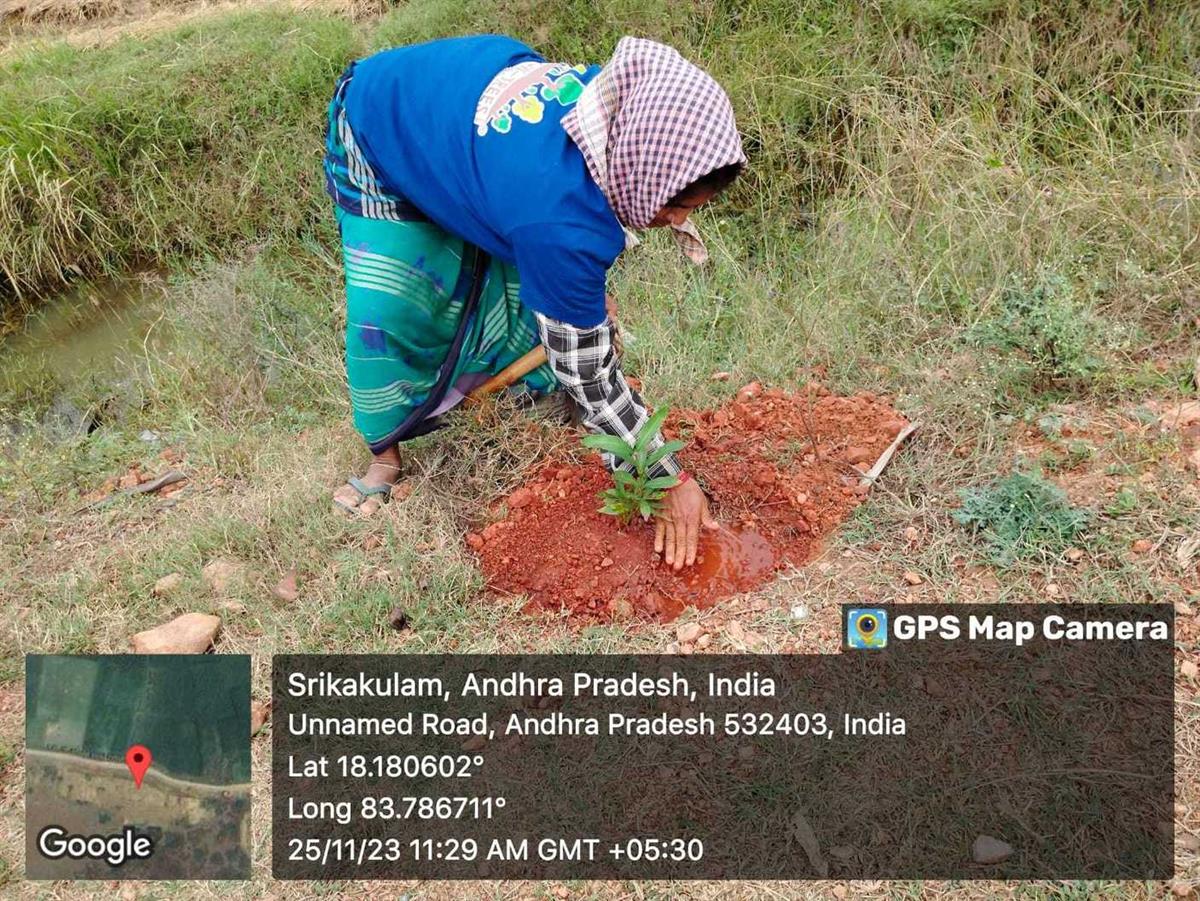
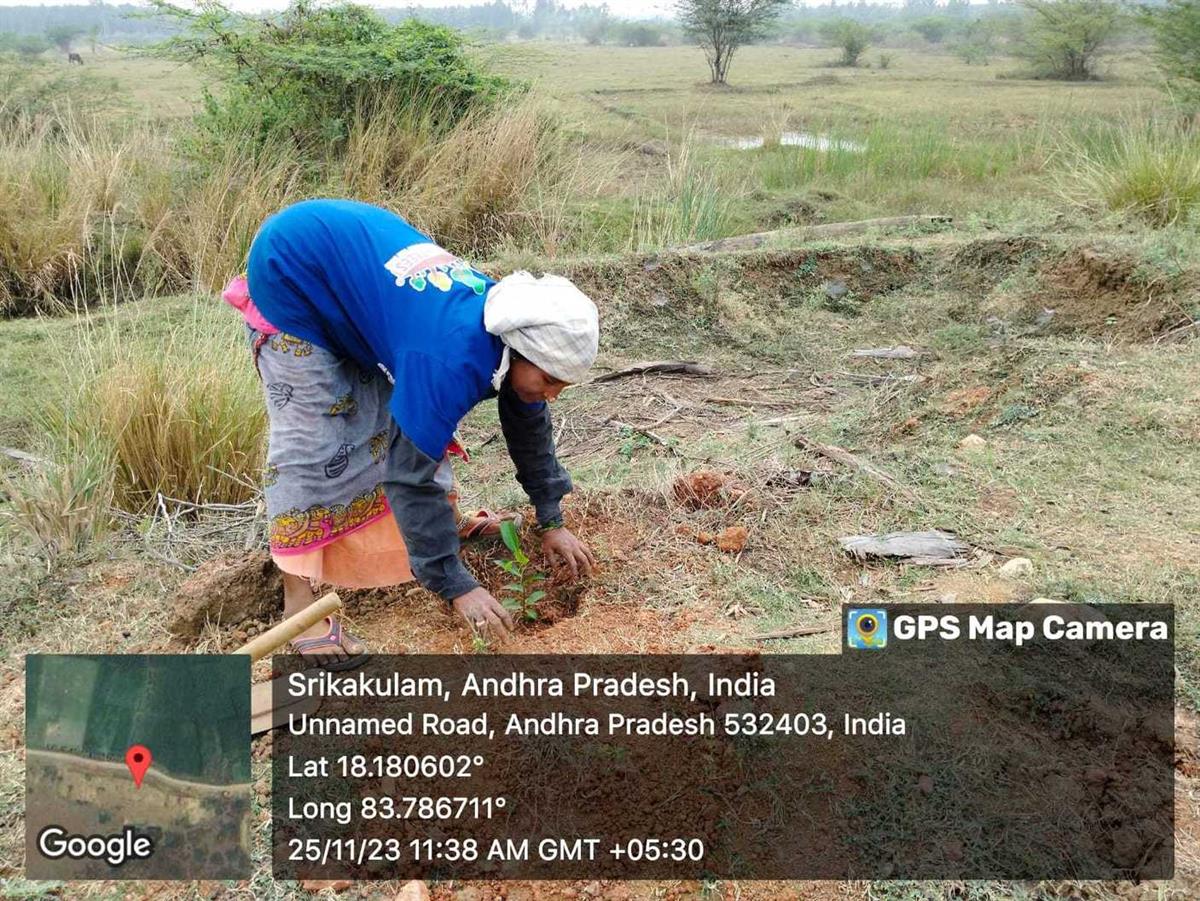
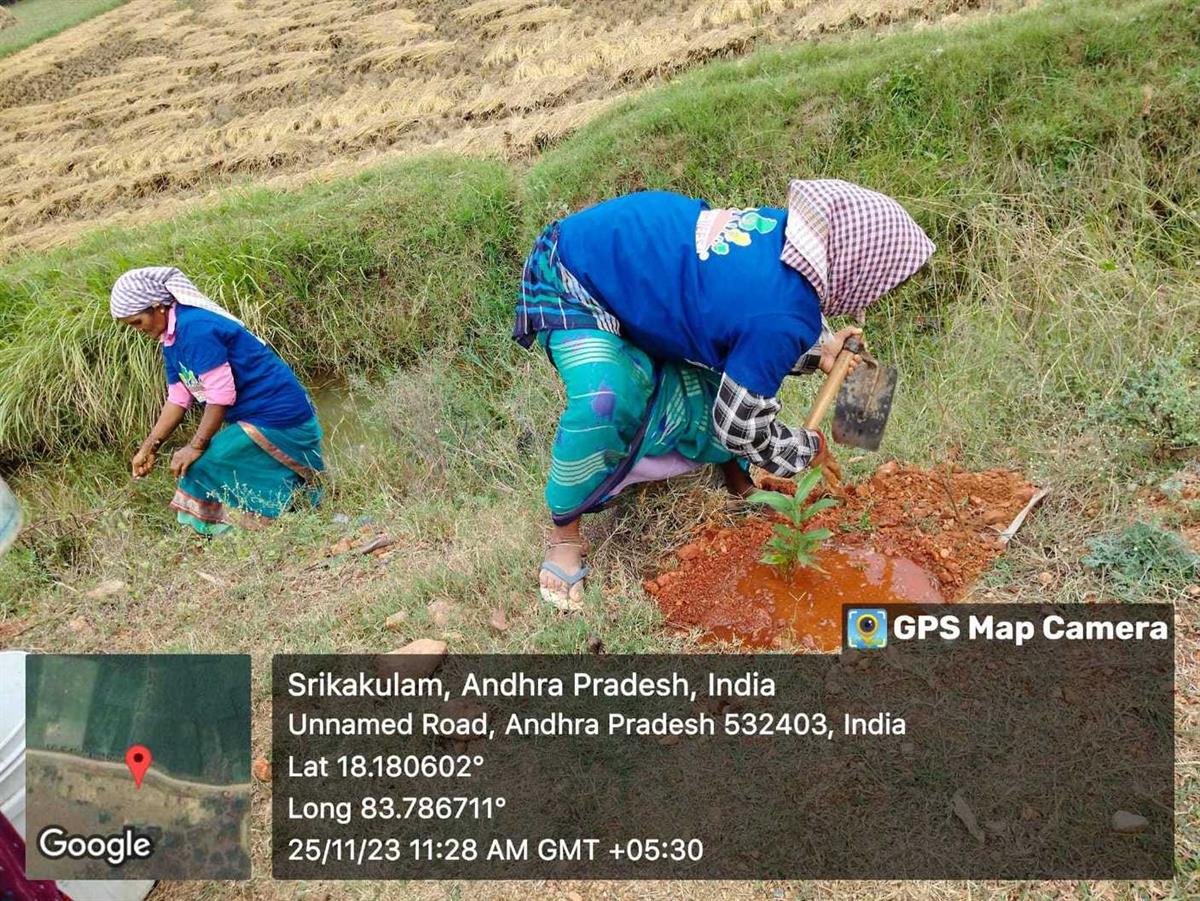

Project Target
0% Remaining
15,000
Trees Planted out of 15,000 Trees

Project Location:
This project supports the plantation of 15,000 trees in Laxmipuram village, located in Laveru Mandal of Srikakulam district in Andhra Pradesh, India.
Project Aim
SDG
About the Project
Research conducted by Economic and Political Weekly suggests that several villages in Andhra Pradesh, including Laxmipuram, grapple with poverty exacerbated by the persistent drought in the region.[1] Employment opportunities are scarce in these villages, compelling residents to depend on daily wages for their survival. In our concerted effort to alleviate these challenges, our plantation initiative aims to generate approximately 1,200 workday opportunities, thereby providing meaningful support to the villagers.
The International Union of Forest Research Organisations (IUFRO) underscores in its Global Assessment Report that planting trees not only contributes to ecosystem services for crop production but also plays a key role in fostering nutritionally-balanced diets.[2]
The proposed planting site is teeming with biodiversity, particularly an abundance of bird species such as Myna, Babbler, Woodpecker, Barbet, Munia, Sparrow, and Drongo. Additionally, numerous water birds contribute to the rich ecological tapestry of the area. The site is also home to various reptiles, insects, and smaller mammals, such as Civet cat, Squirrel, Hare and more. This diverse ecosystem underscores the importance of our plantation project in preserving and enhancing the natural habitat for these varied species.
Tree Species
In this tree plantation initiative, local species have been carefully selected based on the value they provide. Neem (Azadirachta indica), Ponngam – Kanuga (Pongamia pinnata), and Indian tulip – Gangaraavi (Thespesia populnea) have medicinal properties, and Jamun – Neredu (Syzygium cumini) provides fruits for sustenance.
Social Impact
As mentioned above, we have created employment opportunities for the villagers of Laxmipuram by involving them in our planting process. We also encourage women to participate in our projects, enabling them to actively contribute to their household incomes through the workdays generated. The NTFPs from the forest will also help generate additional income as well as food for the rural communities.
Our project is designed to address the recurring issue of animal roadkill accidents caused by insufficient vegetation cover. By planting trees and enhancing greenery, we aim to reduce such incidents and create a healthier habitat for these creatures.
Planting trees plays a crucial role in maintaining the delicate ecological balance by purifying the air, preventing soil erosion, and providing valuable nutrients to the soil. Additionally, they offer medicinal benefits, adding to the overall well-being of the environment.
As our trees mature, their environmental impact becomes increasingly significant. Each tree has the capacity to absorb approximately 20kg of CO2 per year, a conservative estimate recognised globally for its sequestration potential.
[1] Krishna, A., Mahesh Kapila, Sharad Pathak, Mahendra Porwal, Kiranpal Singh, & Virpal Singh. (2004). Falling into Poverty in Villages of Andhra Pradesh: Why Poverty Avoidance Policies Are Needed. Economic and Political Weekly, 39(29), 3249–3256.
[2] Vira, B., Wildburger, C., & Mansourian, S. (2015). Forests, trees and landscapes for food security and nutrition: a global assessment report. IUFRO world series, 33.
Social Impact of Growing Trees
Community Engagement
Tree planting initiatives often involve local communities, which can lead to greater community cohesion.
Ecological Education
Provides opportunities for community members, especially children, about the importance of environmental sustainability.
Urban Beautification
Trees contribute to the aesthetic enhancement of urban areas, making cities more pleasant and liveable.
Climate Resilience
By improving green cover, tree planting helps make communities more resilient against climate impacts like heatwaves.
Employment Creation
Planting trees creates employment for local community members like planting and maintenance, administrative roles, and more long-term jobs in management.
Wildlife Habitat
Trees provide critical habitats for various species of wildlife. Enhancing tree cover helps preserve biodiversity, which can be an ecological boon for local communities
Copyrights @ 2025 All rights reserved by Pangea EcoNetAssets Pvt Ltd.